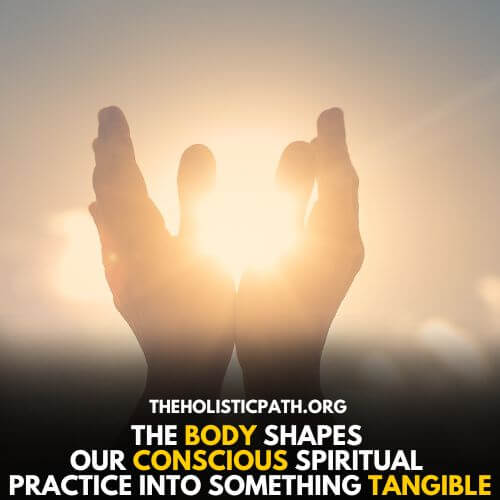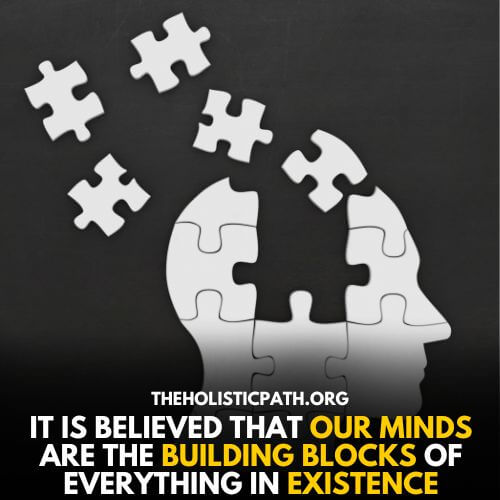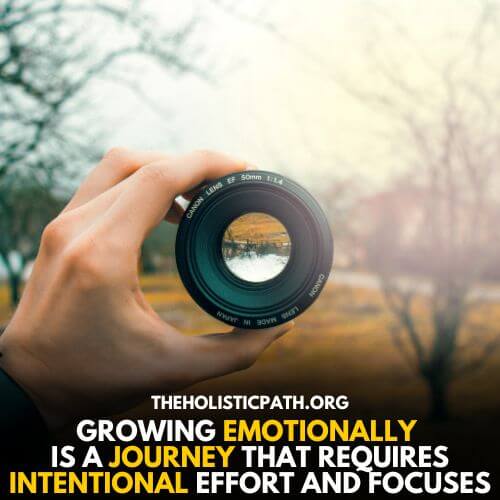Holistic development is an approach to learning and growth that emphasizes the interconnectedness of physical, mental, emotional, spiritual, intellectual, moral, and social aspects in our lives. It promotes a view of people as whole individuals who are capable of developing themselves in all areas simultaneously.
Holistic development emphasizes the importance of creating balance among these different aspects and encourages us to be mindful of how they interact with each other.
Holistic development focuses on individual growth through exploring one’s own identity, values, and goals while also considering how their actions affect others around them. This type of development encourages us to recognize our responsibility for our own well-being as well as that of those around us by making conscious choices about what we do and how we act.
Through this approach, it is possible to create positive changes within ourselves which can have a ripple effect on those around us. Holistic development enables us to become more aware not only of ourselves but also of our environment so that we can make decisions based on both short-term needs and long-term objectives.
Human Beings Have Multiple States And Levels Of Being
Every living being on this planet is made up of multiple levels and states of being; human beings are no different! As human beings, we can experience physical levels of being through the body – eating, talking, and walking. We can also experience emotional levels of being – we feel pleasure, pain, happiness, anxiety, and anger amongst other emotions.
In addition to these two levels, humans have also gained higher levels of understanding and functioning through spiritual awareness – gaining insight into our deepest desires as well as understanding how we respond to external influences.
There are even levels beyond that – connecting with a higher power or connecting with nature just to name a few. Each one serves an important purpose in allowing us to appreciate the world around us from many angles.
Holistic Means To Combine Them All And Live
A holistic approach to living means looking at all levels of being, not just the physical but also the mental, emotional, intellectual, moral, and spiritual aspects of life. It encourages us to embrace the full spectrum of our experience, being aware that feeling balanced and connected to ourselves is essential for overall well-being.

Holistic living involves nourishing and nurturing the self through regular practices such as spending time in nature, meditating, muraqabah, or learning a creative skill set. We can begin connecting with these levels of being by simply taking time to tune into our bodies and exploring how we feel on each level – physically, emotionally, mentally, and spiritually.
A holistic approach helps us to move beyond seeing ourselves as merely physical beings, unlocking insights into other levels of being that can promote self-awareness, clarity, and direction in life.
Why Holistic Development?
Have you ever felt “out of balance?” On the surface, everything may seem okay, but there’s still a lingering feeling of discontentment. This feeling could be signaling that something is off with one of your levels of being. In Islam, these levels are typically viewed as physical, mental, emotional, moral, psychological, intellectual, and spiritual – each level is interrelated and connected.
Achieving holistic development requires tending to all levels of yourself; if something isn’t quite right in one area, it can have an effect on others. From a spiritual perspective, striving for holistic development means nourishing each part of our being so we can move closer to achieving unity with Allah (S.W.T).
When our levels are balanced and aligned, we can live life more fully in accordance with our faith – creating peace within ourselves while living with purpose and meaning.
These States Have Intricate Interconnection
If you look at it from a Muslim spiritual perspective, each level or state of human beings is intricately interwoven and interrelated. Not only are physical levels – such as organs, cells, and molecules – interconnected, but so too are levels in the realms of psychology, ethics, wisdom, and faith.
It’s important to recognize that all of these levels form a holistic picture of one being with different aspects merging together synergistically. In effect, being aware of your levels means being conscious about your entire self and deciphering how the various levels work together in harmony.
When all levels are kept in balance – mind, body, soul – you can reach an elevated state spiritually.
Overall Health, Well-Being, And Success Depends On Balanced Growth And Positive Connection Between Each State/Level Of Self
The journey toward overall health, well-being, and success starts with developing a balanced growth of each level of our “self”. Muslims regard humans as having different levels of being: physical (body), psychological (mind), intellectual, emotional (soul), moral (heart), and spiritual (spirit).
Every stage must be maintained in order to achieve holistic health; it’s like cultivating a 3-dimensional garden. Keeping the levels in sync is essential for positive connection and achieving alignment within ourselves.
Additionally, we must allow faith to guide us on the path toward overall well-being by maintaining healthy Islamic values. From an Islamic perspective, wholeheartedness is seen as both a requirement and reward; each stage requires effort yet prioritizes peace with oneself – for without this harmony, our actions become less meaningful in comparison to those fostering restorative faith.
With focused effort and determination, we can embrace balance in our lives whilst uniting all levels together on our quest for well-being and success.
5 Components of Holistic Development:
Have you ever felt like being fully present and alive? It’s possible to achieve that by understanding how our levels of being interact with each other in a holistic way. In the Islamic spiritual tradition, this is described as the 6 levels of being:
- Physical (Body)
- Psychological (Mind)
- Emotional (Soul)
- Moral (Heart)
- Spiritual (Spirit)
Each one affects the others in an ongoing cycle, meaning that development at any one level can influence all of the levels. Knowing more about these levels can help us to develop ourselves on each level and lead balanced lives, creating positive benefits for all levels of our being.
Now, we are going to look at each component in detail, learning its ins and outs and various ways to develop each of them.
1. Physical:
Physical development is an essential part of holistic growth and well-being. It involves taking care of both our physical health and appearance, which can have a positive effect on all other levels of our being.
To achieve this, we must focus on different elements such as nutrition, fitness, sleep, posture, and more. By understanding the importance of physical health in relation to overall well-being, we can work towards creating a balance between the mind and body that will help us reach greater heights spiritually.
Purpose Of The Body
Muslims believe that the body is given to us by Allah and it exists on multiple levels of being. Physically, we are given a strong vessel to embark on our life journey, and spiritually, our bodies act as gateways to understanding our place in the universe.

The body shapes our conscious spiritual practice into something tangible, providing us with an experience of unity.
Its primary purpose is for us to gain a holistic understanding of ourselves and understand how relationships with other people and things exist around us from a divine viewpoint.
Being present within the body helps remind us of our basic responsibility to honor it in order to live a more meaningful life full of joy, tranquility, and grace.
Interconnectedness
Interconnectedness is a concept that is intrinsic to Islam, something we are reminded of every day through the cycle of salah, which connects us to Allah. It’s the idea that everything in the Universe exists in a relationship and affects one another.
On a spiritual level, it means that levels of being like physical health and emotions are intertwined and interdependent. When you consider physical well-being as part of our whole selves and recognize how it impacts other components, like our mental and spiritual health, it allows us to approach spirituality in a holistic way with all aspects being taken into account.
We look at each level of being, be it physical or emotional, or intellectual, as part of an interconnected energy system where any small shift in one area can spread through all levels. This reminds us how important self-care is, considering how mental stress may lead to physical illnesses but also how a healthy lifestyle will allow us to better experience more spiritual levels. Interconnectedness allows for true union with one another and the Divine by recognizing that everything is connected in a unified way on multiple levels.
Importance Of Health
Health is an invaluable part of our lives, and in Islam, it becomes even more precious. Believers are required to strive for optimum health so they can lead balanced lives and submit fully to the will of Allah.
Good physical health helps us to stay focused, which leads to spiritual growth. From a spiritual outlook, a strong healthy body is necessary to achieve ultimate harmony with Allah and perform acts of worship in their most perfect form.
As Muslims, we are commanded by Allah to take care of our bodies and treat them with respect. Health is a great blessing from Allah that should be cherished, and it’s important to stay mindful of how we use this blessing. Good health keeps us able to fulfill our religious obligations and grants us the physical ability to perform acts of worship such as Hajj & Umrah, fasting during
Ramadan, prayer exertion, and attending functions at mosques or community events.
Keeping ourselves healthy allows us to continually nourish our minds with knowledge in an optimum manner. It also provides strength and productivity in our day-to-day lives which help us achieve the higher purpose for being alive: gaining Allah’s pleasure by being productive servants for His deen (religion).
Simply put, good health enables us to carry out both the obligatory practices and non-obligatory deeds that constitute our submission to Allah’s commands and bring us closer to Him.
There is an emphasis on Muslims taking care of their bodies by having a balanced diet, staying away from intoxicants, getting enough sleep, and exercising – all of which contribute toward physical fitness and maintaining optimal mental well-being. Although it can be hard sometimes given our busy lives, we should always strive towards being pious in every aspect, beginning with looking after our own health as best as possible.
What Is Healthy Living?
Healthy living from a Muslim perspective means striving for overall health and well-being, spiritually and physically. It’s about living in a way that has respect for the environment, oneself, and all other creatures – this includes maintaining healthy relationships with others, being mindful of one’s thoughts and actions, eating nutritious food, and exercising regularly.
These are all components of righteousness in Islam and can be attained through prayer, reflection on religious texts, following the Sunnah of Prophet Muhammad (PBUH), actively engaging in charitable activities, as well as other efforts to become closer to Allah.
Ultimately, remaining conscious of self-care helps us become better servants of Allah – it’s not just about looking good or feeling better; it’s about actualizing our faith in the best ways possible so we can live our lives authentically for Him.
Components Of Physical Health
Physical health is an important component of leading a healthy and balanced life in Islam. It involves more than just eating nutritious food and getting enough exercise; it encompasses being mindful of one’s thoughts and actions, maintaining healthy relationships with others, and remaining conscious of self-care in order to serve Allah better.
Here are some components of physical health:
- Nutrition: Eating a balanced and healthy diet, free from unhealthy fats and sugars, is extremely important for maintaining physical health as per Islamic teachings. It’s also important to always be aware of what you eat and make sure it’s in line with Islamic dietary guidelines.
- Exercise: Regular exercise plays a large role in staying healthy and fit. Islamic teachings encourage us to stay physically active, as physical activity helps maintain optimal mental well-being and can even improve spiritual awareness.
- Sleep: Getting enough sleep is essential for overall health. Not sleeping enough can lead to a weakened immune system, lack of focus and concentration, as well as increased stress levels.
- Mental and Emotional Health: Being mindful of one’s thoughts and emotions is an important component of physical health from an Islamic perspective. It is important to take care of our mental and emotional well-being in order to live a healthy life in accordance with Islamic teachings. This can be done through prayer, reflection on religious texts, and actively engaging in charitable activities.
Food And Its Affects On Our Health
Eating is an important part of our faith and directly influences how healthy we are. The Prophet Muhammad (peace be upon him) taught us to eat in moderation and to break our fast with dates or water – this allows us to recognize that Allah is the one who provides sustenance and that He should be appreciated.

Eating nutritiously plays a major role in promoting good physical health, and is even further emphasized during Ramadan: abstaining from food during daylight hours makes the importance of nourishing your body all the more pronounced.
To keep physically healthy, we should strive for balance:
- To get enough fruits, vegetables, and grains in addition to lean proteins.
- Cut back on processed snacks and refined sugars.
- Ensure your body gets enough fluids through water and other beverages.
- Practice mindful eating instead of reaching out for unhealthy options.
It’s not just about cutting calories but also making sure to enjoy what you eat.
Choose nutritious ingredients with a variety of colors and flavors, minimize unhealthy fat and sugar consumption, respect portion sizes, and always encourage physical activity to stay fit and healthy. Eating healthy food aids digestion boosts immunity, and helps reduce the risk of chronic diseases such as stroke, diabetes, heart disease, high blood pressure, and cancer just to name a few.
So enjoy the bounty of nourishing ingredients the merciful Lord has provided for us.
How To Maintain Health With Holistic Diet
Many people have found success with a holistic diet when it comes to maintaining their health. Holistic nutrition is rooted in Islamic faith and philosophy, looking at an individual not only as a physical being but as an emotional, spiritual, and intellectual one, too.
To practice a holistic diet from a Muslim perspective, focus on consuming organic whole foods that were created by Allah instead of man-made products or refined foods – this means reducing processed and refined sugars, caffeine, and emphasizing plant-based proteins over animal proteins.
Remember to thank Allah for the food you have and eating only when you’re hungry can also help maintain good health. With a holistic diet combined with the right mindset, your body will be kept healthy spiritually and physically!
2. Psychological:
Mental and emotional health is an important component of overall physical health from an Islamic perspective. The teachings of Prophet Muhammad (peace be upon him) encourage us to take care of our mental and emotional well-being in order to live a healthy life according to the Islamic faith.
This can be done through prayer, reflection on religious texts, and actively engaging in charitable activities. In addition, it is essential that we practice self-care by taking time for ourselves mentally as well as physically – this could include mindful eating, regular exercise or even getting enough sleep each night.
Taking these steps will help ensure that we are leading a balanced lifestyle which ultimately leads to greater spiritual awareness and improved physical health.
Purpose Of The Mind
Understanding the purpose of the mind is key to having a comprehensive and holistic understanding of the Islamic faith. As Allah says in the Quran: “For indeed, We alone created humans from a drop of mixed fluids, in order to test them, so We made them hear and see.” (Surah Al-Insan 76:2).
It is believed that our minds are the building blocks of everything in existence. It is through our mind that we can gain knowledge, navigate life’s challenges, be content and develop our spiritual lives.

In Islam, the soul’s primary mission is to achieve nearness and intimacy with Allah through prayer, awakening, and growth from inner reflection. The connection between Islam and mindfulness has been established by scholars who have studied spiritual practices that combine a belief in Allah along with introspection to assist in self-development.
Ultimately, the purpose of the mind is to serve as an instrument for receiving divine grace from Allah; enabling Muslims to live life with reverence for both their own inner lives and for external resources available in nature.
Interconnectedness
Connectivity is a powerful tool that helps us better understand our own lives and how we can work towards deepening our relationships with both ourselves and the world around us. From a Muslim spiritual perspective, interconnectedness is all about understanding how mind, body, and emotional states are intertwined.
The mind does not simply operate the body – it affects emotions and loves to receive affection from them, too. We often forget that there is a dynamic exchange happening between all of these elements.
Without an especially strong mind to stay focused and grounded in truth, our bodies struggle to perform properly and our emotions can overtake us instead of being tackled with appropriate responses. There are countless spiritual practices to strengthen this interconnectedness, from mindfulness to prayer and meditation.
Connecting with Allah’s faithfulness through these practices helps open up greater expression between these parts of ourselves — allowing for more powerful control over one’s life!
How Does Our Mind Work?
It’s a question that has perplexed the world’s greatest thinkers and scholars, including Muslims, for centuries: how does our mind work? It’s a complex topic that requires deep reflection, but fortunately, we can draw upon the wisdom of Islamic spiritual teachings to help us gain insight into its inner workings.
For starters, according to the Islamic tradition, our minds are fundamentally linked to our souls. This is why Muslims strive to use their mental faculties in ways that are pleasing to Allah; behaviors like being grateful for blessings and striving for spiritual advancement can only be accomplished through committing one’s thoughts and actions with intention, self-discipline, and focus.
Moreover, since human beings have free will and the ability to make conscious decisions – both gifts from Allah – Muslims would say our own selves must become subject to the will of Allah so that the soul can enjoy harmony through following divine revelation and exhibiting good character. By understanding all aspects of our mind in this way, we can cultivate richer lives full of powerful virtues reflective of broad-mindedness and faith.
Role Of Thoughts In Psychological Health
Thoughts play a crucial role in psychological health. In the Islamic faith, believing that the heart is where thoughts originate and the mind is where data is processed, one has to be mindful of the content of their thoughts.
Our spiritual texts emphasize that positive thoughts form the basis of good psychological health and have an array of recommendations that can be adopted to cultivate this kind of mindset. Thinking positively is seen as having its own reward – it brings light into our life, reflecting a sense of gratitude, determination, and harmony with nature.
Similarly, pessimistic thought patterns should be avoided as they bring darkness into our hearts and lead to feelings such as fear, anxiety, and despair. Muslims are encouraged to remember Allah often throughout the day; this practice helps us keep negative impulses in check, replacing them with inner peace and tranquility.
Finally, maintaining a regular prayer schedule can help to clear our minds from anxieties by dedicating them to something bigger than ourselves.
Allah (SWT) has placed great emphasis on the power of thought, and He states in the Quran that “Verily in the remembrance of Allah do hearts find rest” (13:28). Thus, thoughts should be directed towards Allah in order to achieve inner peace.
How To Control Thoughts To Overcome Emotional Imbalances
One way to control thoughts and overcome emotional imbalances is by nurturing and strengthening your faith in Allah. Believing that He is In-charge of everything puts things into perspective and helps us develop a heart that is filled with contentment.
We can practice meditation, dhikr, and reflection on the Qur’an which will help us clear away external noises and negative energy to have a better connection with the Divine. Additionally, we should work towards developing good habits such as having positive self-talk, speaking kind words to others, and exercising compassion and charity towards those in need, all of which contribute positively to our mindset and inner balance.
Lastly, don’t forget to ask Allah for help throughout this process; after all, He hears every word we say and will provide us peace through His guidance inshaAllah.
3. Emotions:
At the core of our existence, emotions are incredibly important. Every person has the right to experience and express themselves, so it’s important that we take time to reflect on their place in our lives.

Emotions can help further personal growth and give us a better understanding of ourselves and those around us. We must learn to control our emotions and act prudently rather than being led astray by our passions.
Splitting our thoughts and feelings into actionable topics such as joy, contentment, anger, disappointment or fear can help guide your path towards becoming closer to Allah.
Purpose Of Emotions
Emotions are part of Allah’s Great Design and come as gifts to benefit us – they can enable us to better understand and respond to our environment. At their most basic level, positive emotions generally promote prosocial behavior that can bring us closer to both Allah and the people around us. While negative emotions, like fear or anger, can be useful calls that alert us of danger or changes that need to be made.
Ultimately, the purpose of emotions is to provide insight into ourselves so we may strive to become more purposeful in all our actions. This insight then serves as an opportunity for self-reflection on how we behave amongst our friends and family members, how we interact with society, and how we handle challenges in life.
By recognizing this purpose, it encourages Muslims further deepen their spiritual paths and cherishes the moments of pure joy even more.
Interconnectedness
The concept of interconnectedness is an incredibly powerful one that we all struggle to understand, especially when it comes to our spiritual lives. On a higher level, interconnectedness speaks to the bond between our physical and spiritual selves, which have a major impact on all aspects of our everyday life.
For example, when anger clouds our minds, it can impede proper thinking and impede decision-making. Emotions are fueled by the soul – often referred to in Islam as the nafs – which houses both desires and appetites.
Though the nafs’ experiences of visible examples of this world can influence their desires and direct mind and body towards action, when it is not kept in check by spiritual practice (e.g., prayer), one’s soul may become dominant instead – leading them down a dark path away from their true spirit.
Therefore, maintaining awareness around interconnectedness allows us to use its power for good and stay spiritually connected to gain a true understanding of ourselves.
What Is An Emotional Self?
Muslims believe that we all have an emotional self that dictates how we feel and interact with the world around us. This emotional self needs to be nurtured in order for us to get the most out of our lives and to live according to Allah’s teachings.
We all have different emotions, ranging from happiness and contentment to sadness and depression. It is important for us to recognize our emotional states, recognize how they’re impacting our actions, and use them as a reminder to stay focused on developing spiritually.
An emotional self can be used as an anchor for practicing humility in relation to things that Allah has given us, being conscious of our relationship with Allah, and being proactive in striving towards the best version of ourselves.
How important are our emotions?
Emotions play an essential role in our lives. To begin, they reflect how we perceive the world around us and our relationship to it-ultimately helping us to live according to the principles of Islam.
Emotions are also a source of strength in times of difficulty, allowing us to summon faith during hardship and motivate ourselves when overwhelmed by obstacles.
Finally, our emotions can be used as tools for finding inner peace if we remember to focus on Allah and rely on His mercy at all times; this attitude is crucial in cultivating a sense of contentment even when times are tough. The importance of our emotions therefore cannot be overstated: with forethought and mindfulness, they can help lead us toward understanding Allah’s will for our lives.
How To Grow Emotionally?
Growing emotionally is a journey that requires intentional effort and focuses. It’s important to reflect on our experiences, be self-aware of any areas where we need growth, take responsibility for our mental and emotional states, and consistently nurture self-care practices.

This can sometimes be difficult on one’s own, so it can be beneficial to seek out spiritual mentors or teachers who have the knowledge and experience to support our development. As Muslims, connecting more deeply in prayer with Allah (S.W.T) can also help us grow emotionally.
When we pause to observe His guidance and presence in our lives – through scripture, reflection, gratitude, and duaas – we often find perspective, healing, and well-being.
Ultimately, growing emotionally involves recognizing our human weakness and flawlessness — understanding that mistakes made in the past do not define us nor dictate how far we can go in the future.
4. Moral:
In a world full of strife and chaos, it is easy to forget that having a moral heart should be our ultimate goal. As Muslims, we believe that everything that comes from what is good in us comes from Allah.
The Prophet Muhammad (peace be upon him) taught us to have a strong moral mindset which included kindness, honesty, humility, and generosity. Having a moral heart means making choices based on values like justice and integrity rather than convenience or selfishness.
It also means being accountable for our mistakes and striving for personal growth. If we all held ourselves to this high standard and kept faith in Allah’s grace, the world might really start becoming more of Maher-ul-Habib (the Source of benevolence).
Purpose Of Moral Self
The purpose of the moral self is to help develop faith, awareness, and understanding. This could be done by developing conduct that follows Islamic guidance and beliefs. A strong sense of morality helps in developing the primary characteristic of faith – sabr (patience).
It demonstrates our willingness to strive for an understanding of Allah’s commandments despite any obstacles we may face. The moral self also encourages us to focus more on Allah’s creations, rather than focusing too much on worldly distractions.
It gives us an opportunity to become closer to Allah as we gain a better comprehension of how to lead our lives according to His laws. As such, developing self-discipline and respect extends beyond just fulfilling personal needs and enhances one’s spiritual connection with Allah while helping one stay away from sin and wrongdoings.
Interconnectedness
Every aspect of life is interconnected, and this can be seen in the realm of our faith too. It is important to reflect upon the interconnectedness between morality and the heart.
Our moral self is rooted in our hearts, and this ultimately dictates the direction of our lives.

Our heart is recognized as the seat of our moral self and if it is not enlightened it cannot accurately guide us to lead a purposeful life, or recognize whether we are going in the right direction, let alone correct our path. Without an enlightened heart, our souls become dominant, which can blind us to both the purpose of life and our current direction in it.
Only through an enlightened heart are we able to confirm our purpose and make any necessary corrections on our path toward it. That’s why the Quran places so much emphasis on enlightening the hearts of believers; seeking inner contentment and spiritual peace requires that your heart is properly illuminated first.
An enlightened heart will bring about contentment and peace in this world, not just for us but for those around us, as well as success in the hereafter. This bridges the gap between material success in this world and success in the hereafter and without it, we may find ourselves wanting even though we have everything externally.
What Is The Moral Self?
The moral self consists of the beliefs, ideals, and values we live by, as they relate to our relationship with Allah Almighty. It means striving to be an example of dedication to Allah and walking ‘The Straight Path’. This involves being aware of right and wrong actions and basing one’s moral compass on Quran and Sunnah teachings. Oftentimes, this also entails observing spiritual practices such as praying five times a day and fasting during Ramadan.
By following Divine orders and striving for perfection in His sight, we develop our own moral self which ultimately leads us to prosperity both in this world and the Hereafter. Allah is Merciful, so if we stumble or fall short along the way He will always bring us back with forgiving grace.
Importance Of Moral development?
With the world moving so rapidly and technology transforming what was previously thought impossible, it is easy to be distracted by an existence based on material pursuits.
But as Muslims, we must remain focused on understanding the components of moral (heart) development that will enable us to live fulfilling lives. Moral development is a crucial area of personal growth that all Muslims must strive for. It involves strengthening one’s moral principles, values, and ethical behaviors – such as truthfulness, justice, compassion, mercy, and fairness – in order to bring about an understanding of Allah’s infinite love and mercy.
As we are encouraged by the Quran to uphold virtuous goals and aspirations (5:8), developing our moral framework helps us distinguish between right and wrong. It also allows us to be more mindful and respectful of the diverse needs we encounter on a daily basis, both within and outside of our faith.
Additionally, it motivates us to strive for excellence in all aspects of life because once rooted in moral principles our everyday decisions are guided by faith-based guidelines aimed at upholding positive virtues. Ultimately relying on moral directives inspired by the Quran can lead to more meaningful interactions with Allah through spiritual contemplation and higher inner awareness.
Such endeavors can lead us closer to realizing the Prophetic ideals of peace and joy. It is through these spiritual activities that we may find safe haven from worldly distractions and cling to those things that truly feed our souls.
How To Develop A Moral Self?
Developing a moral self requires hard work and dedication, however, the payoff is immense. Having a strong moral character brings with it blessings from Allah. Being able to resist temptation and staying true to your Islamic values such as prayer, giving charity, keeping promises, and being kind to others are all cornerstones of developing a moral self.
In order to achieve this goal it’s important to stay focused on what really matters. To do this effectively, it is important to support your morals with consistent action; producing good habits can bring long-term success.
This means striving towards values such as truthfulness and respecting others around us. Additionally, developing oneself spiritually involves connecting with the Almighty by consistently participating in religious activities like praying five times daily and fasting during Ramadan.
Providing service to those in need further prepares us for spiritual growth. Lastly, we should be open to critiquing our own behavior and learning from our mistakes, so that we strive for continuous improvement of our characters. With these practices integrated into our lives, we can begin the journey of developing a high moral sense of self.
Also finding a support system such as friends or family who share similar values and attend weekly gatherings where you can build relationships with like-minded people in your community. Staying clear of any negative influences will also help keep your focus on the right track.
5. Spiritual:
People have asked many questions about spirituality over the years. Whether it be how to find inner peace, why certain things happen or what is our purpose in life. We often search for answers outside of ourselves and sometimes don’t understand the true power of faith and prayer.
To explore further, here are three areas we can focus on: connecting with Allah through prayers and duaas, reflecting on the Quran and Hadith, and finding connection through community.
Purpose Of Spiritual Self
The purpose of the spiritual self, from a viewpoint of Islamic teachings, is to build closer ties with Allah (S.W.T) by completely surrendering and submitting oneself to Him. It involves living life guided by the principles of faith such as loving and sacrificing for others, being truthful in one’s words and deeds, restraining oneself from bad habits, and constantly developing one’s inner strength.
It is an inner journey that we embark on to become one with Allah, for when we are connected spiritually with Allah we become closer to the true selves that live within us, and have access to ultimate power and guidance from beyond.
This connection gives us insight into life’s deeper meaning, enabling us to better understand ourselves on both emotional and spiritual levels. It enables us to find contentment in everyday life as well as develop an even stronger relationship with the divine Creator.
Interconnectedness
The spirit is the source of life as it connects to divine guidance which reflects back to our hearts. This must be balanced with our emotional self and intellect to receive and implement this guidance effectively. That way we can cultivate healthier relationships with ourselves and the people around us.

Interconnectedness isn’t just about connecting components together, but rather understanding how they interact and harmonize with each other — when this is understood and followed, we begin to live deeper within our souls and outwards into the world.
What Is The Spiritual Self?
The spiritual self is an integral component of the Muslim faith and can be seen as the part of us that is intimately connected to Allah. It contains divine wisdom and understanding of His will and laws, providing us the strength to come closer to Him and strive in finding a life focused on His pleasure.
Taking time to develop our spiritual selves should be an ongoing pursuit; it involves strengthening our connection with Allah through prayer and worship, contemplation, meditation, examining Allah’s words (the Quran), and engaging in ethical behavior.
Depending on each person’s culture or practice, taking part in rituals like fasting during Ramadan or supplications five times a day can also help immensely in developing one’s Islamic spirituality. Lastly, one should always keep in mind that the journey of looking for the ultimate truth is not limited to any particular age or station—it can start at any time we choose.
Role Of Spirituality In Holistic Living
Embracing the role of spirituality in holistic living can be an incredibly rewarding journey. It focuses on caring for your soul, understanding why it is important to live with purpose, and how this ultimately leads to a healthier lifestyle.
This involves nurturing your faith and nourishing connections with Allah by engaging in activities such as prayer (salat), zakat (charity), contemplation, dhikr (remembrance of Allah), and fasting. After gaining knowledge on the fundamentals of spirituality, one can start practicing the pillars of holistic living, such as being mindful and resilient in life’s daily challenges.
Also understanding that prayer is not only beneficial physically – but spiritually and mentally too – can help build endurance so that one can endure adversities with grace and calmness. Additionally, engaging in charity work or philanthropic activities gives time to reflect upon one’s blessings and become more compassionate towards others and their struggles.
Ultimately, all these practices can go a long way to helping us re-align our being to achieve emotional equanimity, balance, and peace. When prioritized, it brings forth feelings of contentment and vitality. It is a reminder that we are far more than flesh and bone – there’s something so much grander to Beings of divine nature!
We should not forget our interconnectedness with this Spirit and seek ways to align ourselves accordingly so that we may experience the beauty that life has to offer us all.
Purpose Of Life
Many of us struggle to answer the question of what is the purpose of life. From a spiritual perspective, Muslims believe that the purpose of life has been outlined in its entirety by Allah and His prophets.
By following the Qur’an, we are reminded that our lives should be filled with faith, self-discipline, and altruism. It calls on us to develop spiritually and strive for knowledge as a path toward living a fulfilling life.
Alongside this, Muslims believe that it is their duty to worship Allah through prayer and remembrance and to serve others through kindness and charity in order to achieve spiritual harmony within the world by bringing about peace, justice, and compassion for all humanity.
Ultimately, our purpose on earth is to rely on Allah with faith and humility so that we may reap rewards of abundant beauty during our lifetime and in the hereafter.
Reality Of Life
The reality of life is bittersweet; it’s full of beautiful moments and difficult struggles all rolled into one. We have the power to make choices and decisions and determine our own paths and experiences, but sometimes life throws us curve balls that we weren’t expecting or prepared for.
Life is like a journey, it’s all part of faith – to trust that Allah has given us a test in life. We need to take this test with patience and peace in our hearts. Everyone will have different tests in life and Allah (S.W.T) knows these tests better than we ever could. In some ways, each person’s reality of life is unique to them and dictated by their own individual circumstances.
To be successful in life, one must have faith that Allah will always guide them throughout their journey as long as they do their part by striving to do good deeds and staying on the right path. While challenges may arise, just remember that whatever hardship or difficulty you are faced with, it was already destined for you by the Almighty Almighty Allah alone.
So strive forward for His sake, knowing that He is always there for those who put their trust in Him.
Understanding this can help us to better appreciate life’s ups and downs and cherish the good times. It’s important to remain flexible and open-minded so that when a challenge arises we can adjust our sails accordingly and find a way to navigate through it.
Life often takes unexpected turns, so it pays to stay optimistic despite setbacks and use them as learning experiences. Celebrate the wins, while learning from the losses – that’s the reality of life!
The Reality Of This World And The Hereafter
This life is a temporary stage of our existence – an opportunity for us to do good and strive to be the best version of ourselves. The ultimate goal is the hereafter or the afterlife. Life here on earth will eventually come to an end but our learning and experiences won’t just disappear – they will follow us in the afterlife.
Our choices here on Earth will be judged by our Creator and we shall face consequences that can only be realized when it’s too late for regret. That’s why there’s no better way to prepare for the hereafter than living a pious life and leading ourselves toward Allah’s mercy and contentment at such uncertain times of judgment.
This ‘life after death’ can only be achieved after a rigorous development process here in the real world. We must build relationships with people around us and ensure our intentions are based on love and kindness without expecting anything in return.
We must strive for knowledge, use it wisely and unselfishly within our service to Allah, and contribute positively to social upheavals so justice can prevail. These essential components shall make us worthy candidates for His mercy of Jannah – the eternal Paradise which promises unlimited rewards and bountiful blessings accompanied by everlasting joys away from any remorseful sorrows.
How To Grow Spiritually?
Muslims can achieve their spiritual self through prayer (salah), meditation (dhikr), and reflection (tafakkur). All of these activities help Muslims recognize inner peace, increase faith in Allah, gain knowledge about Islam’s deeper meanings, and clear emotions, and counter any negative behaviors like doubt or arrogance. Additionally, they can cultivate humility by restraining one’s ego allowing them to better understand their purpose in this world as Allah’s servants.
Therefore, it is clear that engaging in spiritual practices helps Muslims reach a higher level of understanding that brings peace and joy which attracts Allah’s overwhelming love and mercy toward them.
